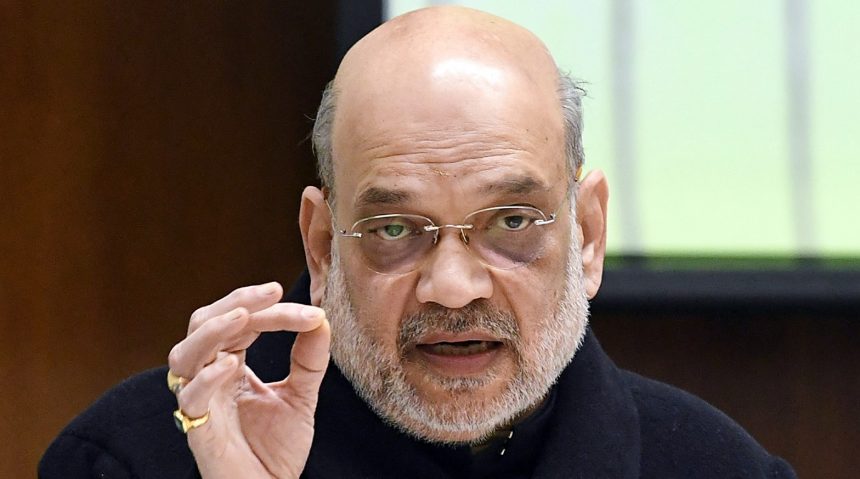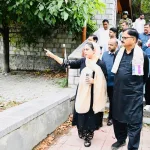New Delhi, Feb 11: Union Home Minister and Minister of Cooperation Amit Shah chaired a meeting of the Parliamentary Consultative Committee for the Ministry of Home Affairs on the topic of ‘Cyber Security and Cyber Crime.’
The meeting, held in New Delhi, was attended by Union Minister of State for Home Affairs Nityanand Rai, Committee members, Union Home Secretary, and senior Ministry of Home Affairs officials. The committee engaged in detailed discussions on various aspects of cyber security and the growing threat of cybercrime.
In his address, Amit Shah emphasised that India’s rapid digital transformation has inevitably led to an increase in cyber threats. He described cyberspace as a complex network comprising software, services, and users, underscoring the necessity of controlling cyber fraud through these three elements to effectively address the challenges posed by the digital world. He further acknowledged the leadership of Prime Minister Narendra Modi in steering the nation toward becoming cyber-safe through strategic initiatives.
Highlighting the scale of India’s digital revolution, Shah pointed out that 95% of the country’s villages are digitally connected, with over one lakh gram panchayats equipped with Wi-Fi hotspots. He noted a 4.5-fold increase in internet users over the past decade, and in 2024, UPI transactions in India totaled ₹17.221 lakh crore, accounting for 48% of global digital transactions. India has also emerged as the third-largest digital economy globally, contributing 20% to its overall GDP. Additionally, the sector has created nearly 15 million jobs.
Shah reaffirmed the government’s goal of zero cybercrime cases and outlined a four-pronged strategy to combat cybercrime: Convergence, Coordination, Communication, and Capacity. These strategies, he stated, are being implemented through clear objectives and a coordinated approach across ministries and departments.
The Home Minister emphasised the importance of public awareness in preventing cybercrime. He urged committee members to promote the I4C helpline, 1930, a one-stop solution for cyber fraud victims, offering services like card blocking. To counter cyber financial fraud, the government is deploying Artificial Intelligence to detect and close mule accounts before they are activated, in collaboration with the Reserve Bank of India and various banks.
Shri Shah further shared that since the inception of the I4C portal, 1,43,000 FIRs have been registered, and over 19 crore users have accessed the platform. The I4C’s efforts have led to the blocking of 805 apps and 3,266 harmful website links for national security reasons. Additionally, 399 banks and financial institutions have joined the initiative, and over 19 lakh mule accounts have been identified, preventing suspicious transactions amounting to ₹2,038 crore.
To strengthen cyber security capacity, Shri Shah mentioned the establishment of Cyber Crime Forensic Training Labs in 33 states and union territories. The “CyTrain” platform has registered over 101,000 police officers, issuing more than 78,000 certificates in cyber crime awareness and training. Committee members appreciated the government’s proactive steps and offered valuable suggestions to further enhance cyber security efforts across the country.








